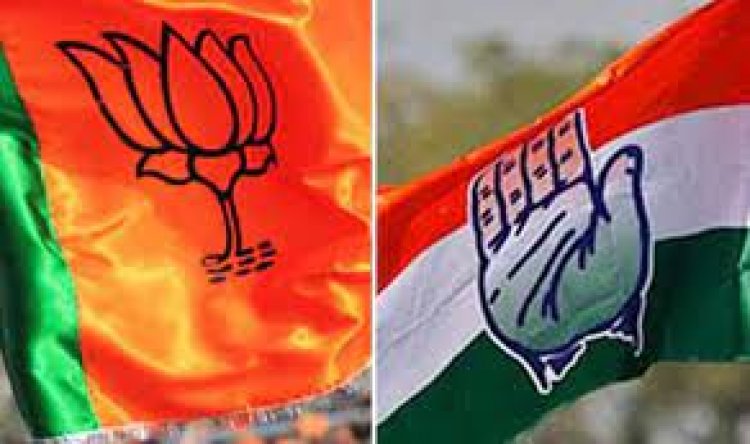BJP Parallel for the Congress
Asia News Agency

While Ghulam Nabi Azad resignation is a blow to the Congress, the party has been descending downwards for some time now.
Swapan Dasgupta (journalist and politician; influential within the Indian right wing espousing Hindu nationalism; nominated member of the Rajya Sabha) draws a parallel with the defeats of the BJP in earlier elections. Coping with the after-effects of electoral debacles isn’t always easy.
Uncertainty in BJP after electoral debacles
“The BJP, now riding high, was in a state of crisis after the shock defeat of 2004 and its second failure in 2009. There were two issues that provoked internal uncertainty.
"First, the assessment of what caused the defeat in 2004 — when Atal Bihari Vajpayee’s popularity was at its height — led to the conclusion that the party had strayed from its core agenda and alienated its support base, particularly in the urban areas. But this understanding of the defeat created its own problems of future action. If the party was to abandon the consensual politics of coalition politics and revert to its Hindu nationalist comfort zone, it would risk losing its allies. That, in turn, would be electorally damaging because the BJP wasn’t in any position to win a majority on its own.
“Secondly, there was a leadership question after Vajpayee, who had an appeal well beyond loyalty to the BJP, bowed out on health considerations in 2005. Within the party, L.K. Advani exercised clear political authority but that position was severely undermined following his heretical comments during a trip to Pakistan on the innate ‘secularism’ of Muhammad Ali Jinnah. Alas for the BJP, there appeared no alternative to the damaged Advani. The grassroots were pitching for the then Gujarat chief minister, Narendra Modi, but the Rashtriya Swayamsevak Sangh leadership was wary. It decided to experiment with Rajnath Singh, a safe pair of hands who, alas, didn’t quite have the same mass appeal of Vajpayee.”
It was this twin uncertainty, writes Dasgupta “that led to a dispirited BJP going into battle against the Congress-led United Progressive Alliance in 2009 and losing badly. Yet, it took another three years before all the stakeholders in the wider ‘saffron parivar’ (RSS family) decided that the grassroots pressure for Modi had become irresistible. The problem of allies remained — recall that the choice of Modi coincided with Nitish Kumar’s first somersault — but it was decided that the BJP wouldn’t eschew its Hindutva agenda. Instead, it would be subordinated to the wider issues of anti-corruption and good governance, issues that would draw the anti-incumbency vote. It worked.”
The present muddle that the Congress confronts isn’t dissimilar
For the Congress, the present political muddle it confronts isn’t dissimilar, writes Dasgupta. In the 2014 election, the Congress lost so badly that its numbers in the Lok Sabha fell below the 10 per cent mark necessary to secure the status of the official Opposition. What was more damaging was the erosion of faith in the potentiality of Rahul Gandhi as the future leader. The scenario was repeated in the 2019 election when, once again, the Congress failed to secure recognition as the official Opposition. Worse, faith in Rahul Gandhi and Priyanka Gandhi was lost.
There was an additional complication. “While the dynastic leadership was clearly wanting, the average party foot soldier still felt that it was not worth risking the future on a leadership that was chosen from outside the Nehru-Gandhi family. The belief that only the dynasty can hold the Congress together and safeguard its future means that the scope for the party evolving a more democratic future is limited.”
All of this is music to BJP ears. With the serious shortcomings within the Congress, the grand old party does not really need enemies.















